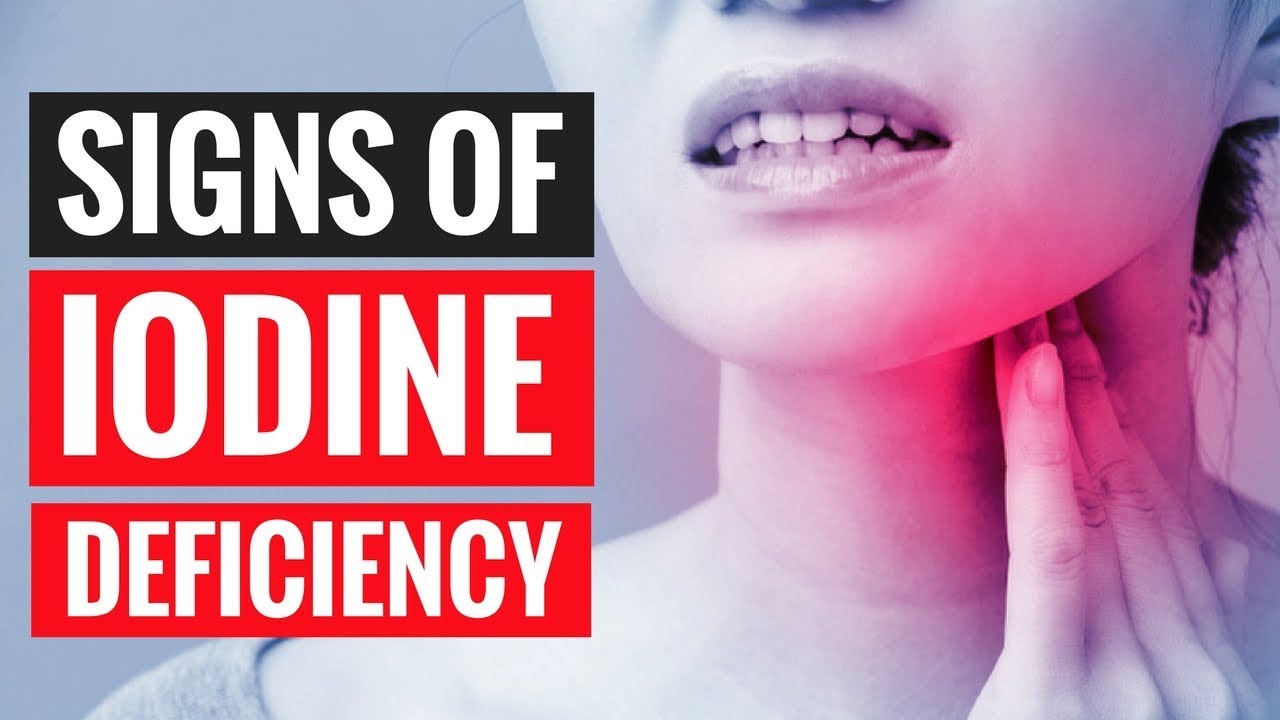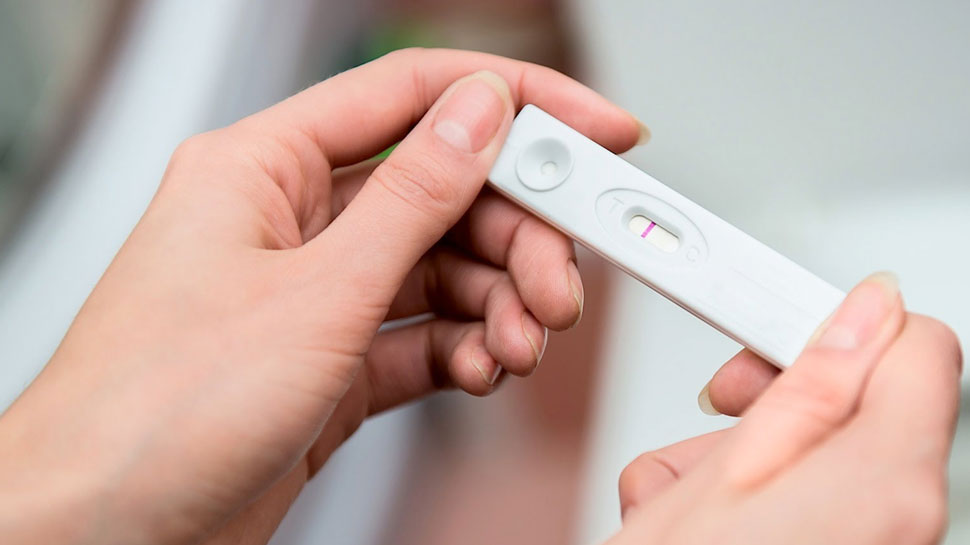Iodine deficiency is a very common problem worldwide and is a major cause of thyroid disorders. The entire mechanism of how deficiency of iodine causes hypothyroidism is a complex explanation. So we will stick to layman terms and keep it simple. Deficiency of iodine causes a range of diseases which, altogether are termed as iodine deficiency diseases. When an individual does not receive enough iodine, the thyroid gland increases in size because the thyroid is unable to make enough hormones that are necessary for the body. This causes the development of a condition called goitre. Iodine deficiency in pregnant and lactating women is a serious concern because it is the most popular cause of preventable mental retardation.
There can be situations where a person might not be getting adequate iodine, but may not show any symptoms of iodine deficiency. The easiest way to know if a person has iodine deficiency is to get a urine test done or a blood test done to check the level of iodine in the body. Thyroid is a very important gland and is responsible for the following:
-Controlling the metabolic rate
-Boosting synthesis of proteins
-Regulating blood flow and heart rate
-Promoting brain development and linear growth in children
-Helping in normal reproductive functioning in adults
Here are the most common signs that can tell you that your thyroid is not functioning properly due to deficiency of iodine.
-You feel lethargic and tired most of the times and suffer from weakness constantly (due to reduced metabolic rates).
-You may start feeling cold, even when it is visibly warm for the others around you.
-You may have difficulty in concentrating and might have a poor memory (due to slowed down mental processes)
-You may experience unusual weight gain.
-You may become more prone to depressive periods.
-You may notice your skin becoming thick and puffy or your face becoming puffier than usual.
-You may suffer from hair loss.
-You may start having frequent problems of constipation.
-Your skin might feel really dry.
-You might feel your heart beating slower.
-Visible signs would include enlargement of the chin and neck area (caused due to enlargement of your thyroid gland).
With proper treatment and change in diet, iodine deficiency disorders can be prevented with ease. For a better diagnosis, you must consult an experienced medical practitioner and follow his suggestions for improving the iodine levels in your body.
Iodine deficiency is a very common problem worldwide and is a major cause of thyroid disorders. The entire mechanism of how deficiency of iodine causes hypothyroidism is a complex explanation. So we will stick to layman terms and keep it simple. Deficiency of iodine causes a range of diseases which, altogether are termed as iodine deficiency diseases. When an individual does not receive enough iodine, the thyroid gland increases in size because the thyroid is unable to make enough hormones that are necessary for the body. This causes the development of a condition called goitre. Iodine deficiency in pregnant and lactating women is a serious concern because it is the most popular cause of preventable mental retardation.
There can be situations where a person might not be getting adequate iodine, but may not show any symptoms of iodine deficiency. The easiest way to know if a person has iodine deficiency is to get a urine test done or a blood test done to check the level of iodine in the body. Thyroid is a very important gland and is responsible for the following:
Controlling the metabolic rate
Boosting synthesis of proteins
Regulating blood flow and heart rate
Promoting brain development and linear growth in children
Helping in normal reproductive functioning in adults
Here are the most common signs that can tell you that your thyroid is not functioning properly due to deficiency of iodine.
You feel lethargic and tired most of the times and suffer from weakness constantly (due to reduced metabolic rates).
You may start feeling cold, even when it is visibly warm for the others around you.
You may have difficulty in concentrating and might have a poor memory (due to slowed down mental processes)
You may experience unusual weight gain.
You may become more prone to depressive periods.
You may notice your skin becoming thick and puffy or your face becoming puffier than usual.
You may suffer from hair loss.
You may start having frequent problems of constipation.
Your skin might feel really dry.
You might feel your heart beating slower.
Visible signs would include enlargement of the chin and neck area (caused due to enlargement of your thyroid gland).
With proper treatment and change in diet, iodine deficiency disorders can be prevented with ease. For a better diagnosis, you must consult an experienced medical practitioner and follow his suggestions for improving the iodine levels in your body.
Iodine deficiency is a very common problem worldwide and is a major cause of thyroid disorders. The entire mechanism of how deficiency of iodine causes hypothyroidism is a complex explanation. So we will stick to layman terms and keep it simple. Deficiency of iodine causes a range of diseases which, altogether are termed as iodine deficiency diseases. When an individual does not receive enough iodine, the thyroid gland increases in size because the thyroid is unable to make enough hormones that are necessary for the body. This causes the development of a condition called goitre. Iodine deficiency in pregnant and lactating women is a serious concern because it is the most popular cause of preventable mental retardation.
There can be situations where a person might not be getting adequate iodine, but may not show any symptoms of iodine deficiency. The easiest way to know if a person has iodine deficiency is to get a urine test done or a blood test done to check the level of iodine in the body. Thyroid is a very important gland and is responsible for the following:
Controlling the metabolic rate
Boosting synthesis of proteins
Regulating blood flow and heart rate
Promoting brain development and linear growth in children
Helping in normal reproductive functioning in adults
Here are the most common signs that can tell you that your thyroid is not functioning properly due to deficiency of iodine.
You feel lethargic and tired most of the times and suffer from weakness constantly (due to reduced metabolic rates).
You may start feeling cold, even when it is visibly warm for the others around you.
You may have difficulty in concentrating and might have a poor memory (due to slowed down mental processes)
You may experience unusual weight gain.
You may become more prone to depressive periods.
You may notice your skin becoming thick and puffy or your face becoming puffier than usual.
You may suffer from hair loss.
You may start having frequent problems of constipation.
Your skin might feel really dry.
You might feel your heart beating slower.
Visible signs would include enlargement of the chin and neck area (caused due to enlargement of your thyroid gland).
With proper treatment and change in diet,
उत्तम आरोग्यासाठी सर्व पोषकघटक योग्य प्रमाणात शरीराला मिळणे, अत्यंत गरजेचे आहे. पोषकघटकांचे कमी-अधिक प्रमाण आरोग्याच्या समस्या निर्माण करते. मग एकातून दुसरी आणि त्यातून मग तिसरी समस्या उद्भवते. हे चक्र असेच सुरु राहते. परिणामी स्वास्थ्य बिघडते. आरोग्याच्या अनेक समस्या निर्माण होतात.
या समस्या निर्माण होतात
महिलांमध्ये आयोडीनच्या कमतरतेमुळे अनेक समस्या निर्माण होतात. आयोडीनच्या गर्भधारणा होण्यास अडथळे निर्माण होतात. त्याचबरोबर वंधत्व, नवजात बालकात व्यंग निर्माण होण्याचा धोका वाढतो.
असा होतो परिणाम
मानवी शरीरासाठी आयोडीन हे एक महत्त्वपूर्ण मायक्रो न्युट्रिएंट आहे. जे थॉयरॉईड हार्मोन्सच्या निर्मितीसाठी आवश्यक आहे. आयोडीनच्या कमतरतेमुळे हायपो थायरॉईडिज्मची समस्या उद्भवते.
तज्ञांनुसार, महिलांच्या शरीरातील आयोडीन कमतरतेचा थेट परिणाम त्यांच्या प्रजनन संस्थेवर पडतो. हायपोथायरॉईडिज्ममुळे वंधत्व आणि गर्भपात होण्याचा धोका वाढतो. थॉयरॉईड ग्रंथींचे कार्य जेव्हा मंदावते तेव्हा आवश्यक प्रमाणात हार्मोनची निर्मिती होत नाही. याचा अंडाशयात अंड उत्पत्तीवर परिणाम होतो आणि हेच वंधत्वाचे कारण ठरते.
त्यावर उपचार महत्त्वाचे
हायपो थॉयरॉईडिज्म असलेल्या महिलांमध्ये सेक्सची इच्छा कमी होणे, मासिक पाळीचे चक्र बिघडणे आणि गर्भधारणा होण्यास समस्या निर्माण होणे, अशा समस्या उद्भवतात. हायपो थॉयरॉईडिज्मची समस्या दूर करण्यासाठी त्यावर उपचार करणे अतिशय महत्त्वाचे आहे. त्यावर उपचार करुनही जर वंधत्वाची समस्या कायम राहत असेल तर त्यासाठी दुसरे उपचार करण्याची आवश्यकता निर्माण होते.












